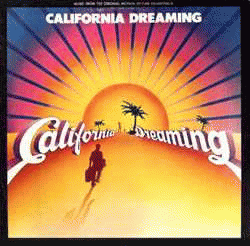It could be the governor's chance to restore the state to its former glory. As noted in Time Magazine:
"[I]n the 1950s and '60s, California was a liberal showcase. Governors Earl Warren and Pat Brown responded to the population growth of the postwar boom with a massive program of public infrastructure--the nation's finest public college system, the freeway system and the state aqueduct that carries water from the well-watered north to the parched south."
But that was before Proposition 13, a California constitutional amendment enacted by voter initiative in 1978. Prop 13 limited real property taxes to one percent of the full cash value of the property and required a two-thirds majority in both legislative houses for future increases of any state tax rates.
Prop 13 radically reduced the tax base, and it would be difficult to raise property taxes now. The tax savings simply drove property prices up, getting capitalized into additional debt service to the banks. Today, a rise in property taxes would lead to even more foreclosures and abandonments, reducing tax revenues even more.
Meanwhile, the state is struggling to meet its budget with a vastly shrunken tax base. What it needs is a new source of revenue, something that won't squeeze consumers, homeowners, or local business.
A state-owned bank can provide that opportunity. North Dakota, the one state that currently has its own bank, is the only state to be in continuous budget surplus since the banking crisis began. North Dakota's balance sheet is so strong that it recently reduced individual income taxes and property taxes by a combined $400 million and is debating further cuts. It also has the lowest unemployment rate, lowest foreclosure rate and lowest credit card default rate in the country, and it hasn't had a bank failure in at least the last decade.
Revenues from the Bank of North Dakota (BND) have been a major boost to the state budget. The bank has contributed over $300 million in revenues over the last decade to state coffers, a substantial sum for a state with a population less than one-tenth the size of Los Angeles County. North Dakota is an oil state, but a ccording to a study by the Center for State Innovation, from 2007 to 2009 the BND added nearly as much money to the state's general fund as oil and gas tax revenues did. Over a 15-year period, according to other data, the BND has contributed more to the state budget than oil taxes have.
North Dakota is a conservative red state, not the sort you would expect to be engaging in government enterprise. But the conservative justification for a state-owned bank is that it preserves state sovereignty, allowing the state to be independent of Wall Street and the Feds. The BND is not a business competitor of the local banks but partners with them, helping with capital and liquidity requirements. It participates in loans, provides guarantees, and acts as a sort of mini-Fed for the state.
According to the annual BND report for 2010:
"Financially, 2010 was our strongest year ever. Profits increased by nearly $4 million to $61.9 million during our seventh consecutive year of record profits. . . . We ended the year with the highest capital level in our history at just over $325 million. The Bank returned a healthy 19 percent ROE, which represents the state's return on its investment."
A 19 percent return on equity beats the 170 billion dollars LOST by CalPERS and CalSTRS, California's two public pension funds, by the time the stock market hit bottom in March 2009. The BND was making record profits all through that period.
The BND augments state revenues in other ways besides just returning its profits to the general fund. It helps build the tax base by providing the funding needed by local businesses, and by financing the infrastructure that attracts them. Among other resources, it has a loan program called Flex PACE that allows a local community to provide assistance to borrowers in areas of jobs retention, technology creation, retail, small business, and essential community services.
The BND also furnishes a credit line to the state itself, one that is effectively interest-free, since the state owns the bank. Credit lines are extended in times of emergency or whenever state departments or municipalities face unforeseen circumstances, such as the recent flooding in the state. Having a credit line to the state's own bank allows state and local governments to avoid extortionate interest rates from Wall Street and pressure to privatize and reduce services in order to avoid downgrades from rating agencies.
(Note: You can view every article as one long page if you sign up as an Advocate Member, or higher).
|
Rate It | View Ratings |
Ellen Brown is an attorney, founder of the Public Banking Institute, and author of twelve books including the best-selling WEB OF DEBT. In THE PUBLIC BANK SOLUTION, her latest book, she explores successful public banking models historically and (more...)

OpEdNews depends upon can't survive without your help.
If you value this article and the work of OpEdNews, please either Donate or Purchase a premium membership.
If you've enjoyed this, sign up for our daily or weekly newsletter to get lots of great progressive content.
Most Popular Articles by this Author: (View All Most Popular Articles by this Author)
It's the Derivatives, Stupid! Why Fannie, Freddie and AIG Had to Be Bailed Out
Mysterious Prison Buses in the Desert
LANDMARK DECISION PROMISES MASSIVE RELIEF FOR HOMEOWNERS AND TROUBLE FOR BANKS
Libya: All About Oil, or All About Central Banking?
Borrowing from Peter to Pay Paul: The Wall Street Ponzi Scheme Called Fractional Reserve Banking
"Oops, We Meant $7 TRILLION!" What Hank and Ben Are Up to and How They Plan to Pay for It All
To View Comments or Join the Conversation:





